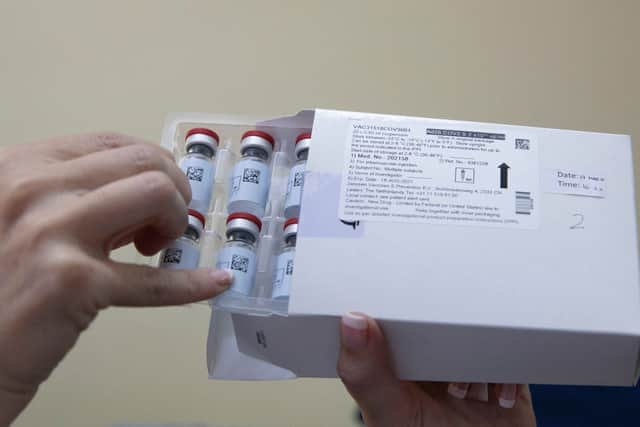C.1.2 variant: new Covid strain found in South Africa explained, is it more infectious - and do vaccines work?
and live on Freeview channel 276
A new Covid-19 variant first identified in South Africa is causing concern for the world’s scientists, who warn it may have the potential to evade vaccines.
The variant has since been found in China, the Democratic Republic of the Congo, Mauritius, New Zealand, Portugal, and Switzerland.
So should we be concerned?
Here is everything you need to know about it.
What is it?
Advertisement
Hide AdAdvertisement
Hide AdScientists have linked the strain to “increased transmissibility”, and have said C.1.2 is the most mutated variant that has been detected so far since the beginning of the coronavirus crisis in 2020.
According to experts at South Africa’s National Institute for Communicable Diseases and the KwaZulu-Natal Research Innovation and Sequencing Platform, the C.1.2 strain has a mutation rate of around 41.8 mutations per year.
That is almost double the global mutation rate for other variants of concern (VOC) found so far.
It is thought that this ability to consistently mutate could help the virus to evade antibodies provided by current Covid-19 vaccines, thereby reducing immunity.
Advertisement
Hide AdAdvertisement
Hide AdThe findings were published in the scientific journal, Nature.
“Although the full import of the mutations is not yet clear,” scientists said, “the genomic and epidemiological data suggest that this variant has a selective advantage—from increased transmissibility, immune escape or both.”
The C.1.2 lineage is likely to have emerged in a major metropolitan area in South Africa after the first wave of the epidemic, say scientists, and then to have spread to multiple locations within two neighbouring provinces.
“This lineage has rapidly expanded and become dominant in three provinces, at the same time as there has been a rapid resurgence in infections,” they said.
Is it in the UK?


Advertisement
Hide AdAdvertisement
Hide AdPublic Health England has revealed that the C.1.2 strain is among 10 coronavirus variants currently being monitored by scientists in the UK.
Another South African strain, dubbed B.1.351, was discovered by scientists in a study in April which had the potential to “break through” the protection provided by the Pfizer vaccine.
Researchers compared almost 400 people who had tested positive for Covid-19 two weeks after they had received one or two doses of the jab against the same number of people who were ill with the virus and unvaccinated.
Findings showed that the vaccine appeared to be less effective against the B.1.351 variant, after the variant was found among many of those who had received two doses.
Advertisement
Hide AdAdvertisement
Hide AdThe results suggest that the variant is, “to some extent”, able to “break through the vaccine’s protection”.
However, researchers said that the prevalence of the B.1.351 strain among those tested was low, meaning it has not spread widely through the population.
Should we be worried?
So far, the virus has not fulfilled the World Health Organisation (WHO) criteria to qualify as a “variant of concern” or “variant of interest”.
South Africa’s National Institute for Communicable Diseases said: “We are being cautious about the implications, while we gather more data to understand viruses of this lineage.”
Advertisement
Hide AdAdvertisement
Hide AdDr Megan Steain - a virologist and lecturer in immunology and infectious diseases with the University of Sydney’s Central Clinical School - said C.1.2 ”contains quite a few key mutations that we see in other variants that have gone on to become variants of interest.
“Any time we see those particular mutations come up, we’d like to keep an eye on the variant to see what it’s going to do.”
She told The Guardian it will take some time for scientists to do the laboratory tests to see whether the virus is better or worse than the Delta variant, which is dominant in many areas of the world.
“C.1.2 would have to be pretty good, pretty fit, and pretty fast to outcompete Delta at this stage,” Steain said. “I think we’re still very much at a point where this could die out, the prevalence is really low.”
A message from the editor:
Advertisement
Hide AdAdvertisement
Hide AdThank you for reading. NationalWorld is a new national news brand, produced by a team of journalists, editors, video producers and designers who live and work across the UK. Find out more about who’s who in the team, and our editorial values. We want to start a community among our readers, so please follow us on Facebook, Twitter and Instagram, and keep the conversation going. You can also sign up to our newsletters and get a curated selection of our best reads to your inbox every day.
Comment Guidelines
National World encourages reader discussion on our stories. User feedback, insights and back-and-forth exchanges add a rich layer of context to reporting. Please review our Community Guidelines before commenting.
